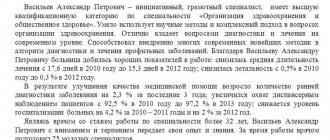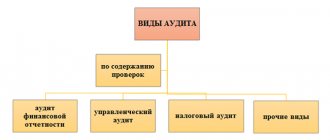Not every enterprise has in its documentation a Regulation on bonuses for employees, which relates to internal regulations. As a rule, it is mainly found in government and budgetary structures, as well as in large commercial companies with a large number of structural divisions and full-time employees. Small businesses do without it, which is quite acceptable, since the law does not oblige organizations to use such a document.
FILES
Why do you need a Bonus Regulation?
Each enterprise has the right to independently develop a bonus system for its employees. The only condition for this is that it fully complies with the framework of the current legislation of the Russian Federation.
Generally speaking, the Regulations establish which employees, for what services and under what circumstances can receive financial incentives from the company’s management.
Thus, by developing the Regulations on bonuses, the enterprise administration usually achieves several goals at once:
- increased labor productivity and employee efficiency,
- the quality of products improves,
- labor discipline is strengthened,
- general prospects are expanding.
In some cases, in the future, the Regulations may become a legally significant document that has evidentiary force in court - for example, when resolving labor disputes and disagreements regarding the payment of wages and other material incentives to an employee. That is why its preparation should be treated with the utmost care, taking into account all the subtleties and nuances of the enterprise.
In what cases is it possible to reduce or deprive incentives?
Since bonus incentives are part of remuneration, the employer is obliged to pay the amount reflected in the employment contract to the employee if the conditions for quality work are met and high performance is achieved. However, in some situations the employer may reduce or not pay the bonus :
- In case of failure to fulfill the work plan and work responsibilities.
- If an employee is absent from the workplace without a valid reason.
- As a result of violations of internal labor regulations, non-compliance with safety regulations.
- In case of damage to company property by an employee.
You can find out more about the reasons on which an employee may not be given a bonus and how to document the procedure for depreciation here.
When applying for a job, you should read all the documents and job descriptions in great detail to avoid unpleasant situations. Monetary incentives for employees increase the efficiency of the company, coupled with moral incentives, which involve ensuring social justice in relation to the organization's employees.
Didn't find the answer to your question? Find out how to solve exactly your problem - call right now:
+7 (Moscow) +7 (St. Petersburg)
Bonus payments are one of the components of remuneration. The decision on this is made by the director of the enterprise on the basis of internal regulations. The article discusses in detail the issue of types of bonuses for good work and the wording for their design.
Who draws up the Regulations
The responsibility for developing this document on bonuses for employees usually falls within the competence of the company's lawyer, personnel officer, and less often - the secretary or the manager himself. In any case, this must be a person who has the necessary theoretical knowledge in the field of labor and civil legislation and the skills to write such documents. And regardless of who is directly involved in this work, the final version of the regulation must be submitted for approval to the director of the organization.
Deprivation of a bonus: important nuances
Labor legislation does not allow organizations to deprive their employees of wages, but bonuses are not mandatory payments. It follows that the employer may simply not issue the bonus. Since the conditions for calculating bonuses are specified in the company’s regulations and when concluding an employment contract, an employee cannot simply be deprived of payments; this will require compelling reasons.
Terms of bonus reduction
The organization's regulations on the rules for paying bonuses indicate the grounds for deprivation of bonuses, otherwise there will be no reason for deprivation of bonuses. Partial cancellation must also be justified. It is strictly forbidden to withhold allowances from an employee’s salary.
Depriving an employee of bonus payments will be considered legal if the following points are taken into account:
- There must be references to orders or other documents on the basis of which depreciation occurs.
- The fact of violation must be confirmed by supporting documents.
- The amount withheld is determined based on the non-payment provision.
- It is necessary to inform the employee in person about the fine being issued.
It is important to know! An employee, if a reprimand has already been given, should not tell the manager about the reason for not fulfilling his job duties.
Description of the procedure
To deprive an employee of a bonus, it is necessary to formalize this process on paper. The manager or responsible person must write a memo for depreciation. There are no specific requirements for document execution; the following points must be indicated:
- Full name of the employer to whom the appeal is being written;
- Full name and position of the responsible person who makes the proposal;
- Full name of the offending employee indicating his position;
- the amount of penalties;
- reasons as a result of which a person is deprived of a bonus.
In case of violation of discipline, you will need to write a link to the provision confirming this fact. Next, an order is issued to deprive the employee or group of persons of the bonus, indicating their positions.
It is important to know! If in an employment contract the salary consists of a salary part, a bonus and an allowance, then in this case the cancellation of the bonus is illegal.
https://youtu.be/tCANicDG7cw
Disciplinary action and bonus
Article 192 of the Labor Code of the Russian Federation distinguishes between the concepts of bonuses and disciplinary sanctions for employees. According to the Labor Code of the Russian Federation, penalties include the following types of punishment: warnings, reprimands, and dismissal. An employee cannot be deprived of a bonus and reprimanded for the same offense at the same time. Thus, from these rules it follows that a penalty and a bonus cannot be a double fine for an offense committed.
Is it necessary to familiarize employees with the Regulations?
Theoretically (and often practically) the Regulation applies to every employee of the enterprise, so all employees must be familiar with it. As a rule, the document is studied directly during employment or, if the document was developed during the period of active work of the organization, at any stage of its activities.
Typically, companies have special journals in which employees sign that they are familiar with the company’s internal regulations, including the Regulations on Bonuses.
Bonus procedure for high performance results
A bonus for employees for high performance results is assigned based on the order of the manager. If the bonus is due to one employee, then the order is drawn up in a special form T-11, if the bonus is intended for several persons, then in the form T-11a.
The order must indicate:
- Full name of the employee;
- reason for bonus;
- the amount of monetary compensation and the period for which the bonus was accrued.
To correctly calculate and award bonuses to an employee, the employer must take into account the amount of time worked. The bonus calculation formula in this case is as follows: the employee’s tariff rate is divided by the standard working time per month and multiplied by the time worked (in days). To determine the hours worked, the employee's time sheet is taken.
When calculating remuneration, the regulatory document Article No. 191 of the Labor Code of the Russian Federation, Incentives for Labor, is used.
Article 191 of the Labor Code of the Russian Federation. Incentives for work
The employer encourages employees who conscientiously perform their job duties - expresses gratitude, gives a bonus, awards a valuable gift, a certificate of honor, nominates them for the title of the best in the profession (read more about how to fill out an application for encouraging an employee using the sample for paying a bonus) .
Other types of employee incentives for work are determined by a collective agreement or internal labor regulations, as well as charters and discipline regulations.
For special labor services to society and the state, employees can be nominated for state awards.
After calculating the amount of monetary remuneration, form T-11 is filled out and submitted to the accounting department. The bonus is accrued and paid along with the salary in the same period for which it was accrued.
You can find out what a sample order for a bonus for a professional holiday looks like here, and in this article we talked about the procedure for calculating incentives for an anniversary.
Rules and example of drawing up Regulations on bonuses
There is no standard, unified, one-size-fits-all form of this document, so organizations can develop the Regulations in free form. The main condition is that it contains:
- name of company,
- creation date
- and the signature of the manager.
It is recommended to note a number of information that it is desirable to include in the document, these are:
- conditions for awarding the award,
- its size
- and payment terms.
It is also advisable to note that bonuses are solely the initiative of the employer - this, if anything happens, will help avoid unreasonable demands from subordinates.
How is the bonus amount determined?
Bonuses can be set either as a fixed amount or as a percentage, based on a certain indicator. It is important that these indicators are clearly recorded and explained.
Indicators are divided into two types:
- Quantitative (expressed as a percentage of completed tasks, compliance with deadlines and standards).
- Qualitative (expressed in the quality of work performed, savings on materials, energy, gasoline, etc.).
Indicators can be associated with making a profit, as well as with increasing production volume. Indicators for a specific division or department must be accurately stated and divided into specific employees.
Rules for document execution
The document can be drawn up on a simple blank A4 sheet or the organization’s letterhead - this does not matter, just like whether it is written by hand or printed on a computer. The only rule is that it must have the signature of the head of the company or another person responsible for the approval of such employee documents. It is not necessary to certify the document with a seal, since since 2020, legal entities, as previously and individual entrepreneurs, have the right not to use seals and stamps to endorse their documentation.
The regulation is usually drawn up in a single copy , registered in the company's accounting policies, and then contained together with other internal regulations in a certain order. After losing its relevance, it is transferred for storage to the archive of the enterprise, where it remains exactly as much as is established by law. After the expiration of this period, the Regulation can be disposed of.
What is the document used for?
There are two groups of regulations:
- mandatory (labor rules regulated by Article 189 of the Labor Code of the Russian Federation; vacation regime; regulations - instructions on labor protection, etc.);
- optional (these include regulations on employee incentives, because the Labor Code does not contain any requirements for the need to develop this document).
Bonuses may or may not be assigned based on the results of work performed. This is an effective stimulation of work activity and activity of employees . For high achievements (fulfilling and exceeding the plan, developing innovations, etc.), employees receive a bonus, but for minor successes no bonus is awarded.
With the help of the developed and implemented algorithm for calculating bonuses, the employer can seriously save wage fund reserves. If the amount of earnings is divided into two parts, basic and bonus, then it becomes possible not to spend money on issuing bonuses. In this case, these funds can be saved, leaving them in the company’s circulation legally, or distributed among specific employees based on their achievements.
Whatever the employers’ motives, it is always very profitable for them to manage the bonus fund themselves.
This benefit will be clearly expressed when any actions (assignment or deprivation of a bonus) are carried out in accordance with the current legislation (LC, TC, Civil Code of the Russian Federation). This is why it is necessary to develop a regulatory internal act that will fully reflect all the requirements and goals. The employee incentive regulations allow :
- from the point of view of documentation: there is no need to separately specify all the points related to bonuses in employment agreements concluded with employees;
- avoid unnecessary questions and claims from representatives of tax authorities (in connection with the inclusion of bonuses in labor costs when calculating income tax);
- avoid controversial issues regarding the calculation of temporary disability benefits (with the social insurance authority).
Each company has provided and developed its own individual bonus system, based on production, technological and organizational features of the work.
We remind you that you can get a quick free consultation by phone: +7 just click to call









